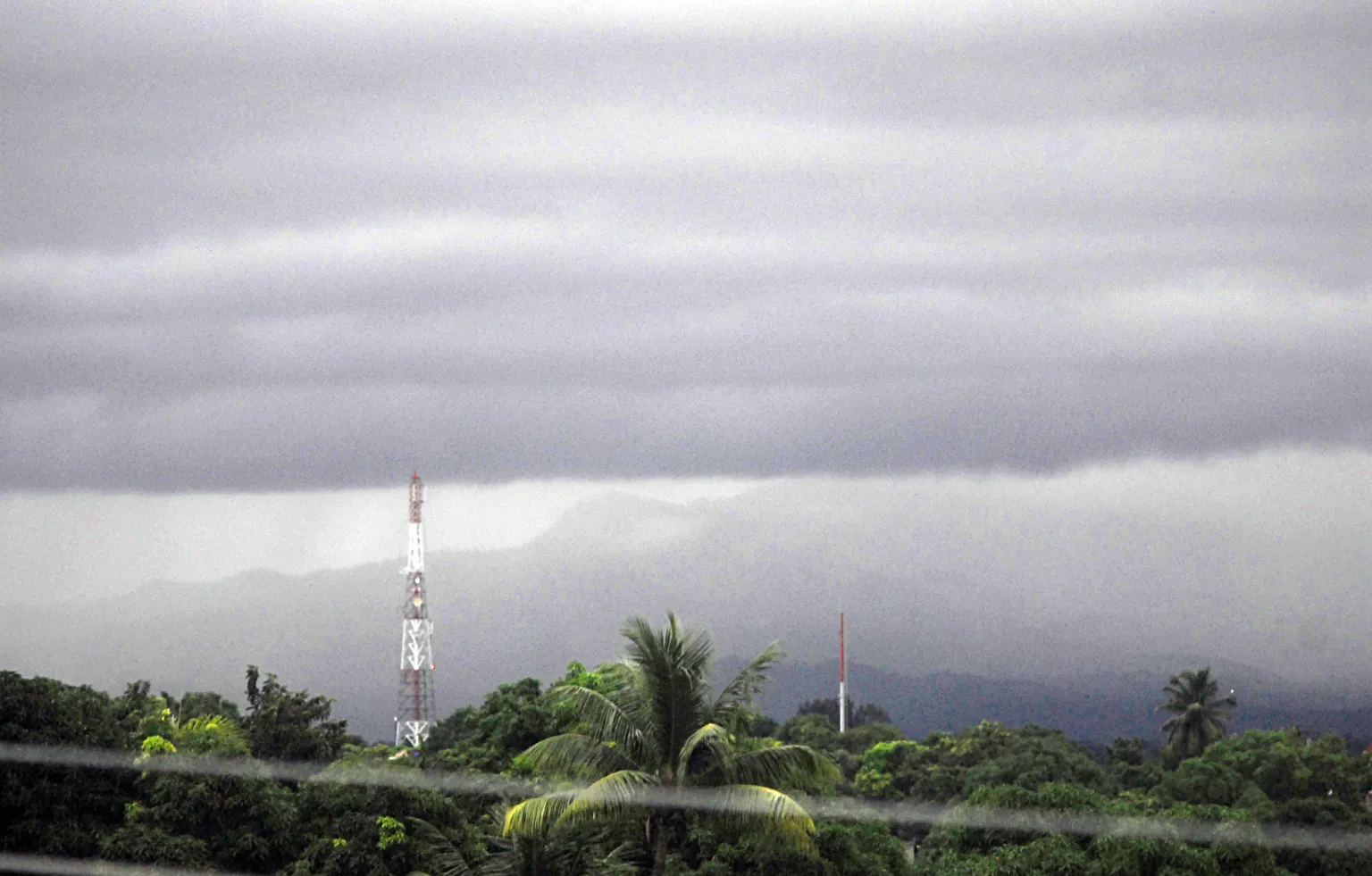International
Death toll rises to seven after the passage of tropical storm Oscar in Cuba

The Cuban government raised the death toll to seven on Tuesday after the passage of the tropical storm Oscar in the eastern end of the island.
The island president, Miguel Díaz-Canel, reported in his X account that the seventh fatal victim was located in the town of Imíaz, in the province of Guantánamo, the most punished by the meteorological phenomenon.
“We deeply regret and convey our deepest condolences to family and friends. We point out the effects for each area, the actions that will be taken as soon as it is possible to start the recovery phase, as well as the necessary resources according to the protection of the people and the compensation of the damage in the shortest possible time,” wrote the Cuban president.
A number of rural communities still incommunicado after the passage of the storm has made it difficult for the authorities to make an initial assessment of personal and material damage.
Thousands of homes affected in Cuba by storm Oscar
The Government and the official media have added that, in addition to the loss of life, there are more than a thousand homes affected, damage to state infrastructure and considerable damage to agriculture.
Early Tuesday, the Cuban state press reported that there are 6,000 people affected and about 4,000 “family nuclei” mainly by the floods, which have caused river overflows and sea penetrations in low coastal areas.
Oscar entered Cuba as a category 1 hurricane (out of 5) on the Saffir-Simpson scale on Sunday afternoon and spent just over 24 hours on the island, accompanied by strong winds, heavy rains and tides.
According to the Insmet, it made landfall near Baracoa (east) at 18:10 local time on Sunday and left Cuban territory in the vicinity of Gibara (east) around 19:20 local time this Monday.
In that sense, Civil Defense decided this Tuesday to declare the return to the phase of “normality” in the eastern provinces of Santiago de Cuba, Granma, Holguín and Las Tunas “as it did not have any effects.”
Fifteenth tropical storm
Oscar is the fifteenth tropical storm of the current cyclonic season in the Atlantic and the first to hit land in Cuba.
The U.S. weather services The US and Cuba warned months ago that this season of hurricanes in the Atlantic, which runs from June 1 to November 30, was going to be especially active.
The last time a major hurricane hit Cuba was in September 2017 when Irma advanced parallel to the north coast of the island and caused ten deaths and material losses officially valued at 13,185 million dollars.
International
New York Announces First 2,000 Seats in Universal 2-K Program

The Governor of New York, Kathy Hochul, and New York City Mayor Zohran Mamdani took another step today in their universal early education agenda by announcing the communities that will have access to the first 2,000 seats in the new 2-K program this fall — an initiative backed by a $73 million investment.
The funding is part of the $1.2 billion package previously unveiled by Hochul to strengthen child care and early childhood education across the city, one of the key campaign promises of the now Social Democratic mayor.
At the time of the announcement, the governor also outlined additional funds to reinforce the existing 3-K early education infrastructure, a program launched under former Mayor Bill de Blasio (2014–2021).
When the 2-K initiative was introduced in January, Mayor Mamdani explained that its first phase would offer 2,000 seats, with the goal of eventually expanding into a universal program — a commitment supported by the governor.
State investment in child care and preschool services is expected to increase to $4.5 billion by fiscal year 2027.
Among the first communities set to benefit from the 2,000 seats are Upper Manhattan and Inwood — areas with large Dominican populations — as well as Fordham and Kingsbridge in the Bronx, a borough with a Latino majority.
In East Brooklyn, Canarsie, Brownsville, and Ocean Hill will also be included. Meanwhile, Ozone Park and the Rockaways are among the neighborhoods that will see the rollout of the 2-K program.
International
Warner Bros. Developing First ‘Game of Thrones’ Movie With ‘Andor’ Writer

Warner Bros. is developing the first feature film based on the hit saga Game of Thrones, with Beau Willimon — screenwriter of Andor — attached to direct, according to a report published Tuesday by Page Six.
The project, currently in early development, will focus on the conquest of King Aegon I Targaryen. A separate television adaptation centered on the same historical storyline within the franchise is also in early stages at HBO.
However, the outlet noted that it remains unclear whether the film will move forward following the recent acquisition of Warner Bros. Discovery by Paramount Skydance.
If the merger is finalized, the movie could potentially be shelved, although that scenario appears unlikely given that the Game of Thrones franchise remains one of HBO’s most valuable and beloved properties.
After six seasons adapting the work of George R. R. Martin, the platform expanded the universe with House of the Dragon, a prequel series set 200 years before the events of Game of Thrones that explores the history of House Targaryen.
International
Spain’s Prime Minister to Address Nation Amid Trump’s Trade Threats

The Prime Minister of Spain, Pedro Sánchez, will deliver an institutional address this Wednesday at the Moncloa Palace regarding the escalating situation in the Middle East and recent threats directed at Spain by U.S. President Donald Trump.
The Spanish government announced that Sánchez will make a statement at 9:00 a.m. local time to outline his position on the latest developments following the U.S. and Israeli attacks on Iran.
Sánchez is expected to reiterate Spain’s reasons for opposing the use of U.S. military bases on Spanish soil in the operation—an action he has already described as being outside international law—while also expressing criticism of the Iranian regime.
Government sources indicated that the address had been planned prior to Trump’s remarks criticizing Spain’s stance. However, following those comments, Sánchez is now also expected to respond directly to the U.S. president’s statements.
Trump has threatened to “cut all trade with Spain” and said he wants “nothing to do” with the country after Madrid refused to authorize the use of the Morón and Rota military bases in southern Spain for operations against Tehran.
The U.S. president also labeled Spain “a terrible NATO partner” and warned that “no one” would tell him he could not use the facilities.
In response, the Spanish government stated that Spain fulfills its commitments to NATO and European defense. It also warned Trump that any review of bilateral trade relations must respect international law and the agreements in place between the European Union and the United States.
-

 International2 days ago
International2 days agoIran Reports 201 Dead, 747 Injured After U.S. and Israeli Strikes
-

 International2 days ago
International2 days agoPope Leo XIV Urges End to ‘Spiral of Violence’ in Middle East
-

 International5 days ago
International5 days agoCocaine Production Surges 34% in 2023 as Market Expands into Africa and Asia
-

 International4 days ago
International4 days agoTrump Floats “Friendly Takeover” of Cuba Amid Rising Tensions
-

 International23 hours ago
International23 hours agoBrazil’s Supreme Court Rejects Bolsonaro’s Bid for House Arrest
-

 International3 days ago
International3 days agoSecurity Council to Hold Emergency Meeting on Middle East Crisis
-

 Sin categoría3 days ago
Sin categoría3 days agoTrump: ‘We Think It’s True’ Amid Claims Iran’s Supreme Leader Was Killed
-

 International4 days ago
International4 days agoArgentina’s Senate Reviews Milei-Backed Labor Overhaul
-

 International5 days ago
International5 days agoFederal Judge Blocks Trump Policy Allowing Deportations to Third Countries
-

 International22 hours ago
International22 hours agoAnti-ICE Billboard Campaign Targets Immigration Spending in 31 U.S. Cities
-

 International5 days ago
International5 days agoClinton Accuses Republican Committee of Using Epstein Case to Shield Trump
-

 International23 hours ago
International23 hours agoTrump Warns of ‘Major Wave’ of Attacks as Iran Conflict Escalates
-

 International22 hours ago
International22 hours agoMexico Calls for Immediate Probe After National Dies in ICE Custody
-

 Central America22 hours ago
Central America22 hours agoPanama Canal Monitoring Trade as Middle East Conflict Disrupts Shipping
-

 International22 hours ago
International22 hours agoBolivia Orders Three Investigations Into Deadly Military Plane Crash
-

 International53 minutes ago
International53 minutes agoNew York Announces First 2,000 Seats in Universal 2-K Program
-

 International1 hour ago
International1 hour agoSpain’s Prime Minister to Address Nation Amid Trump’s Trade Threats
-

 International56 minutes ago
International56 minutes agoWarner Bros. Developing First ‘Game of Thrones’ Movie With ‘Andor’ Writer
-

 Central America58 minutes ago
Central America58 minutes agoGuatemala’s Attorney General Fails in Bid for Top Court Seat Amid Corruption Allegations




























